CAA News Today
CAA-Getty International Program 2023: Applications now open!
posted by CAA — July 06, 2022
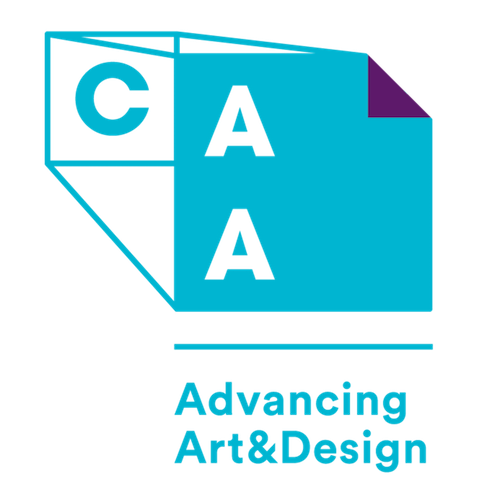

The Getty Foundation has awarded the College Art Association (CAA) a grant to fund the CAA-Getty International Program for a twelfth consecutive year. The Foundation’s support will enable CAA to bring twelve international visual-arts professionals to the 111th Annual Conference, taking place New York, NY, February 15–18, 2023. These individuals will be first-time participants in the program and will be accompanied by alumni of the program returning to present papers during the conference.
Participants will receive funds for travel expenses, hotel accommodations, per diems, conference registrations, and one-year CAA memberships. We encourage all international art historians, art history educators, and museum curators to apply. The program will also include a one-day preconference colloquium on international issues in art history on Tuesday, February 14, as well as ongoing engagement with other alumni from the program online and at future conferences. The deadline for applications is August 15, 2022. Guidelines and application can be found here.
Last year, CAA organized a publication to celebrate ten successful years of the CAA-Getty International Program. The publication, entitled Global Conversations: 10 Years of the CAA-Getty International Program features in-depth accounts of the program, a timeline of important events and milestones, and directories of past papers, members, and meetings.
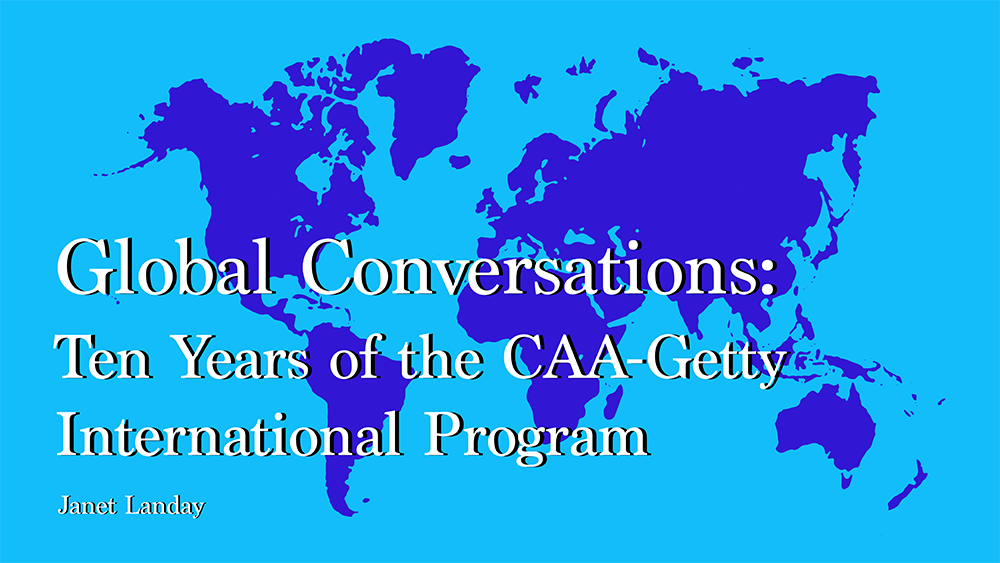
The CAA-Getty International Program was established to increase international participation in CAA and the CAA Annual Conference. The program fosters collaborations between North American art historians, artists, and curators and their international colleagues and introduces visual arts professionals to the unique environments and contexts of practices in different countries.
Since it began in 2012, the program has brought 147 scholars to the conferences, from over 50 countries located in Central and Eastern Europe, Asia, Southeast Asia, Africa, the Caribbean, and Central and South America. Each year, a preconference colloquium on international topics in art history inaugurates the week, kicking off four days of conference sessions, meetings with new colleagues, and visits to museums and galleries. Subsequent to these events, the program has generated many scholarly collaborations, including publications, conferences, and exhibitions.
Most of all, former grant recipients have become ambassadors of CAA in their countries, sharing knowledge gained at the Annual Conference with their colleagues at home. Past recipients have said that “variety of topics presented also exposed me to the realization that there is so much to be done to unearth the hidden treasures of global art history, which hitherto I have overlooked in my discipline and nation but which will now form the basis of my future projects,” and “the direct contact with other global south researchers is an unique occasion, rarely possible and extremely enriching.”
IN MEMORIAM: SAM GILLIAM
posted by CAA — June 30, 2022
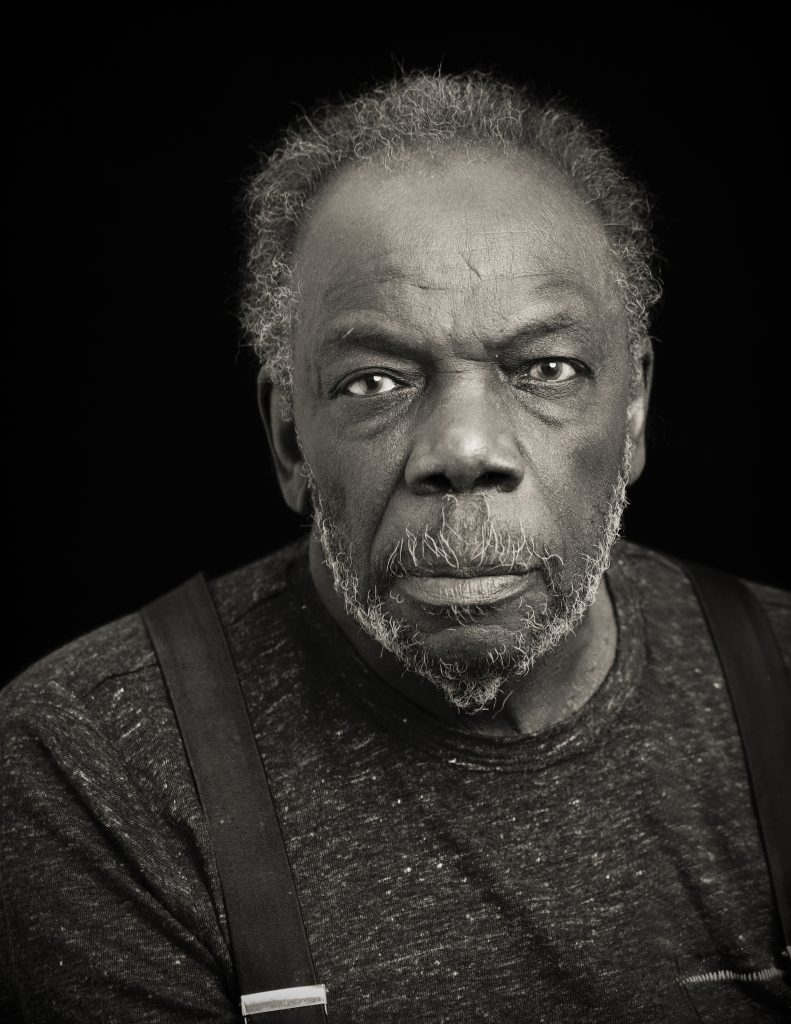
Photograph provided by Pace Gallery
Sam Gilliam, the famous and groundbreaking abstract American painter, died in his home in Washington D.C. on June 25 at the age of 88. A part of the Washington Color Field painters of the 1960s, Gilliam freed his paintings from traditional supports and became well known for draping and folding his abstract canvases. Interested in color, form, and process, his approach combined painting with sculpture, and used pouring and staining techniques to create broad fields of color.
His works are included in many of the nation’s most prominent art collections and museums, including the Metropolitan Museum of Art, the Museum of Modern Art, the Tate Modern, and the National Gallery of Art.
Gilliam’s enormous draped canvases were the most visible aspect of his career, but he also supported his fellow artists through collectives, mentorship, and service. As a lifetime member of CAA he contributed actively to the CAA community in myriad ways – donating artwork, serving on juries for our distinguished awards, serving on committees, and sitting on our board of directors.
As the chair of the Sub-Committee on Public Art of the CAA Artists’ Committee he helped draft our 1987 standards and guidelines for public artworks. This was revised and reapproved in February of 2022 and remains a canonical guide for artists working in the public realm.
He also donated artwork alongside Kiki Smith, Faith Ringgold, and Miriam Shapiro to support CAA’s Professional Development Fellowship Program in the early 2000s.
In addition, he volunteered his time as a board member from 1985-1988 and served on our juries for the CAA Artist Award for a Distinguished Body of Work and Distinguished Artist Award for Lifetime Achievement.
Read more about his career here.
CWA Picks: Summer 2022
posted by CAA — June 30, 2022
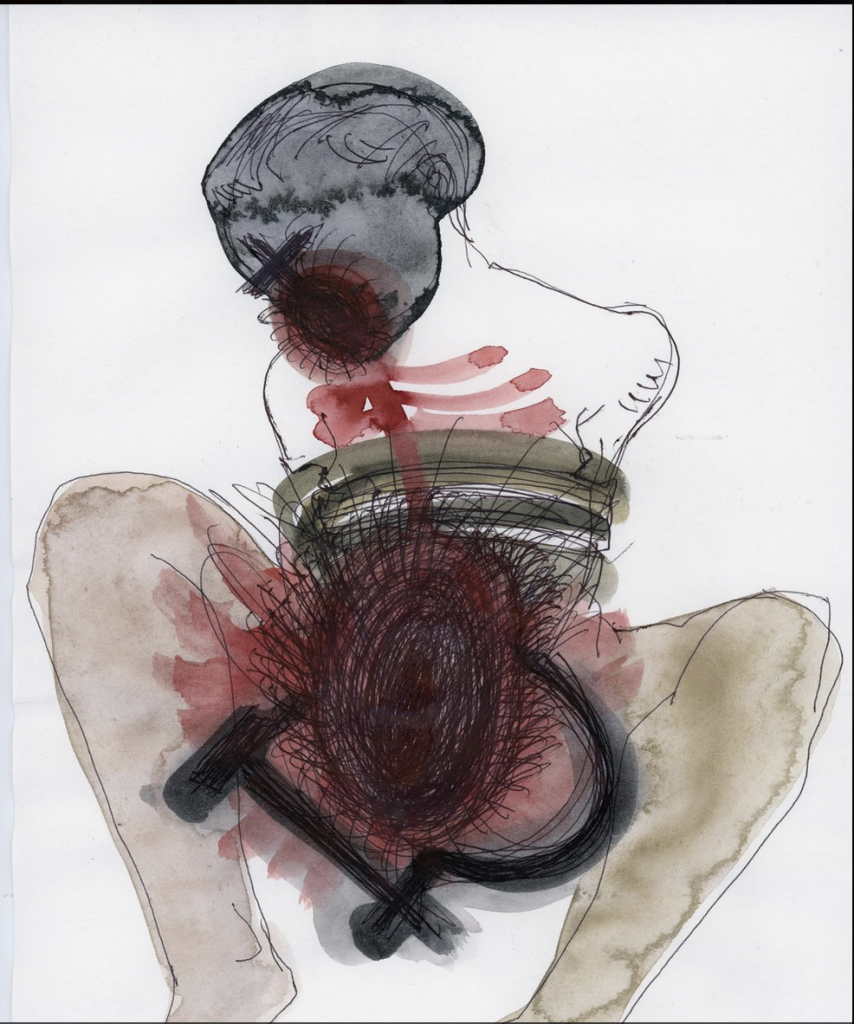
Vlada Ralko, Lviv Diary No. 020, 2022, ink and watercolor on paper, 11.5 x 8.5 inches, ©Vlada Ralko, courtesy of Voloshyn Gallery and Fridman Gallery
Exhibitions and Scholarship Selected by the Committee on Women in the Arts (CWA)
If trauma names the psychic impact of damaging events, it also points to the possibility of working through the mute immobility that is trauma’s primary effect. Gender hierarchies are part of trauma and the recovery from it. In What Does a Woman Want? Reading and Sexual Difference (1993), Shoshana Felman makes a broad and provocative claim: “every woman’s life contains explicitly or in implicit ways, the story of trauma.” The scholarship and exhibitions featured here substantiate Felman’s insight. In a few exhibitions, trauma is pronounced and linked to specific events, such as Russia’s assault on Ukraine. In others, trauma must be discerned in portrayals that attest to the diffuse reality of gender inequity. All of the work tells us that the current historical moment is rife with danger and violence and thereby underscores the necessity of feminism’s insights.
Each month, CAA’s Committee on Women in the Arts selects the best in feminist art and scholarship. The following exhibitions and events should not be missed.
Trauma-Informed Pedagogy: Addressing Gender-Based Violence in the Classroom
Jocelyn E. Marshall and Candace Skibba (eds.)
Emerald Publishing, 2022
What role can teaching play in the effort to address gender-based violence? This collection offers practical, creative, and theoretical strategies for addressing this specific form of trauma in the classroom. The editors assert that teaching can create spaces that counter the “silence” and “unempathetic discourse” that gender-based violence most often meets when it is brought into the open. Featuring the artwork of and scholarship on the indigenous artist Julia Rose Sutherland, as well as a conversation between curators Monika Fabijanska and Dineke Van der Walt, Trauma-Informed Pedagogy foregrounds visual art practices as tools for exploring trauma and finding possibilities for recovery. This makes perfect sense, given the “troublesome visual representations” that block out the fact that gender-based violence is pervasive but systematically denied, a trauma in and of itself.
Women Painting Women
Museum of Modern Art, Fort Worth, Texas
Through September 25, 2022
Feminist art tends to be associated with practices that defy medium, genre, and the art historical canon, but what about the women painters who situate their work firmly in the figurative tradition? Curated by Andrea Karnes, Women Painting Women features the work of forty-six painters who have made women their subjects since the 1960s and illuminates the feminism that can animate figuration. Creatively rendering women’s “bodies, gestures, and individuality,” together these portraits play with a range of scales that move from the modest (Somaya Critchlow) to the gigantic (Jenny Saville) and suggest the spaces allotted to women and the spaces they want to claim. Women Painting Women is a refreshingly straightforward but decidedly necessary theme, given how rare it is to see women as artists and artistic subjects at the same time.
Martine Syms, Neural Swamp
Philadelphia Museum of Art
Through October 30, 2022
Martine Syms’ multi-channel video installation Neural Swamp deploys the tactics of surveillance, cinema, and sport to investigate what it means to be a Black woman in a hyper-digitized world. Blurring the line between horror and humor, Syms works with algorithms and artificial intelligence to question the technologies that erase and exploit Black bodies, voices, and narratives. Accompanied by Kit’s World, a series of videos that also explore technological mediation, Neural Swamp was commissioned by the Future Fields commission in Time-Based Media.
Women at War
Fridman Gallery, New York
July 6 through August 26, 2022
In collaboration with Voloshyn Gallery in Kyiv, Ukraine, Monika Fabijanska curated this timely exhibition that documents how Ukrainian women artists explore the gendered dimensions and consequences of war. Several artworks were made after Russia’s invasion of Ukraine in February 2022, others date from the eight years of war following the annexation of Crimea and the creation of separate ‘republics’ in Donbas in 2014. Together the artwork in Women at War poses questions about women as the natural victims of war and creates a nuanced picture, both of Ukrainian feminism, and the visual practices that have accompanied it. Through a wide array of themes, mediums, styles, Women at War narrates a nuanced history of women in Ukraine and is, more broadly, a historiographic project that meditates on how women become visible when history is written as a war against their agency.
Cornelia Parker
Tate Britain, London
Through October 16, 2022
One of Britain’s most beloved contemporary artists, Cornelia Parker works with domestic objects and reconfigures their scale through playful visual storytelling that often defies gravity. By doing so, Parker’s sculptures materialize the violence that undergirds everyday life and suspends it in the field of vision for all to see.
Ancestors Know Who We Are
Online
National Museum of the American Indian
The Smithsonian, Washington D.C.
Ancestors Know Who We Are is the Smithsonian’s first exhibition to feature Black-indigenous women artists. The title is borrowed from Storm Webber’s 2016 letterpress print, a statement she crafted in black sans serif letters in response to comments that she is neither Black nor Native enough. Across a range of mediums that trouble distinctions between tradition and the contemporary , the artists in this exhibition challenge assumptions that Native and Black experiences have essential and easily discernible features. In so doing, they unsettle the visual economy of race and the permission it gives to question who people are.
Andrea Bowers
Hammer Museum, University of California, Los Angeles
Through September 4, 2022
This is Andrea Bowers’ first museum retrospective and it surveys two decades of her artwork’s intimate connection to activism. A large part of Bowers’ work reframes protest banners and posters to show that political address is a form of creative expression that seeks to imagine and write more just worlds. Isolation and despair haunt this artwork, but the austerity Bowers brings to her images of protest ultimately draws attention to the bravery of individual activists as they seek collectivities that can confront and transform the regressive politics of twenty-first century mobs.
Yayoi Kusama, A Poem in My Heart
Yayoi Kusama Museum
Tokyo, Japan
Through August 28, 2022
This exhibition highlights the Surrealism that pulsates through Yayoi Kusama’s hallucinatory visions. Featuring paintings from the 1950s, viewers can see further into the artist’s inner landscapes and psychic worlds. The artwork overflows with organic, idiosyncratic forms that twist and undulate to reveal the poetics of Kusama’s creative heart.
Suzanne Lacy, The Medium is Not the Only Message
Queens Museum
Queens, New York
Through August 14, 2022
The Medium is Not the Only Message is a major survey of an artist who helped define feminist performance in the 1970s. Lacy has consistently put social issues—sex work, violence against women, racism, labor rights, poverty, and aging—at the center of her work. In recent years, she has become an artist who expands the reach of the museum, bringing institutions into the public worlds in which they are situated. This exhibition focuses on two dimensions of Lacy’s practice: personal narrative and conversation. Both underscore the value she places on relationality, co-creation, and mutual learning, all of which rebuff the presumption that technological mediums really allow people to communicate with each other. Featured projects were selected for their connections to Queens and demonstrate Lacy’s commitment to community-based practices that move “Between the Door and the Street,” the title of a 2013 project that featured women talking about the issues that impact their lives.
Meet the Inaugural CAA-GOLDEN Scholarship Recipients
posted by CAA — June 28, 2022
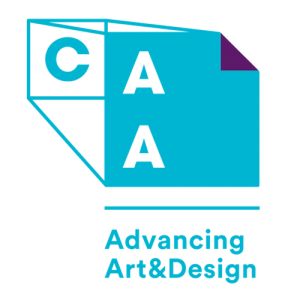

The CAA-GOLDEN Scholarship Program supports artists whose mission it is to give back to their communities through teaching, while nurturing and developing their own talents and capabilities as artists. Funded by Golden Artist Colors, Inc., CAA grants two unrestricted scholarships of $8,000 each on an annual basis to artists with an MFA who are pursuing a career in K-12 education. Grantees will also receive two weeks at the Sam and Adele Golden Foundation Residency Program, $1000 towards GOLDEN products, registration to the 2023 CAA Annual Conference, and one year of CAA membership.
MEET THE GRANTEES
Mick Bodnar

Having grown up between two dairy farms in rural New York State, Mick Bodnar is something of an anomaly in the art world. He has over two decades of experience as a working-class graphic designer. After being displaced from that career, he embarked on a formal education. His collegiate career began at SUNY Broome Community College, where he gained an AS in Visual Communication Arts, and received the BCC Foundation Scholarship for Excellence in Liberal Arts, the Robert R. Cotten II Award in Graphic & Editorial Design, plus the SUNY Broome Second Chance Scholar Award. With those achievements, he was offered a generous scholarship to attend an elite private college. From that institution, Bard College, he earned a BA in Studio Arts, the Studio Arts Award, and the Bard Center for the Study of Hate Fellowship Award. In 2022, he gained an MFA in Painting & Drawing from SUNY New Paltz, as well as the Outstanding Graduate Award in Studio Arts and the Sojourner Truth Fellowship Award. In 2022, he plans to pursue a master’s degree in Art Education from Adelphi University.
Mick is proud that his work to date has been well-received equally by the layman as well as by academics. He believes that art is the purest form of communication between humans, crossing the barriers of time, culture, and language — and that everyone should have access to it, regardless of background. He is committed to making art available to the general population.
Beth Reitmeyer
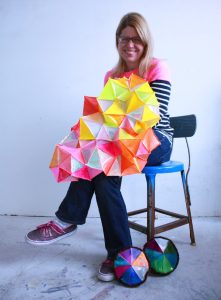
Beth Reitmeyer. Photo by Krystal Henriquez / Assets for Artists.
Beth Reitmeyer is a visual artist based in Nashville, TN who likes to make people happy with her colorful installations. Her work investigates landscapes and the joy of unexpected yet beautiful spaces and places that are discovered as one explores the land and structures within it: clouds, rivers, caves, geodes, stars. These environments allow viewers to explore the land and get to know one another in a more profound way, providing space for renewal and hope for persevering.
Beth was born in Colorado Springs, CO and raised in Louisville, KY. She attended Northwestern University (MFA), The School of the Art Institute (Post Baccalaureate program), and the Pennsylvania State University (BFA). In the fall of 2022, she will be pursuing a Master’s in Education/Teaching at Western Kentucky University or Lipscomb University.
Beth teaches with the Frist Art Museum, Western Kentucky University, Cheekwood Estates and Gardens, and Nashville School of The Arts.
Beth’s work has been exhibited at the Frist Art Museum, Nashville; Elizabeth Foundation for the Arts, New York; OZ Arts, Nashville; 1708 Gallery/Virginia Museum of Fine Arts, Richmond, VA; FIGMENT, Chicago; The Downing Museum, Bowling Green, KY; Kindling Arts Festival, Nashville; Zg Gallery, Chicago; Ground Floor Gallery, Brooklyn, NY; Institute of Contemporary Arts, London. Beth has been an artist-in-residence at The Studios at MASS MoCA, ChaNorth/ChaShaMa Foundation, The Ragdale Foundation, CONVERGE, and Mineral House Media. Recent awards include grants from the Metro Nashville Arts Commission/National Endowment for the Arts and a finalist for a Burning Man grant.
Jonathan Fineberg and Art Since 1940
posted by CAA — June 22, 2022
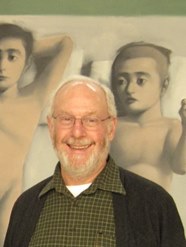
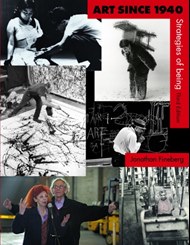
A prolific art historian and critic in the fields of 20th and 21st century art and the psychology of art, Jonathan Fineberg has shaped generations of students with his many publications and textbooks. As a long-time member of CAA, Fineberg describes his experience with the organization:
“Seymour Slive, one of my favorite art history professors in college told me I should join the College Art Association if I wanted to be an art historian. CAA was (is), he pointed out, my professional association! I signed up right away (in 1966) and have remained an active member ever since. I’ve served on the board, I started the “artist interviews” many years ago, I’ve chaired and participated in many sessions and committees over more than fifty years, and until COVID hit I think I only missed one annual conference – my personal protest against the racism and anti LGBTQ+ stance of the state of Louisiana (that was the year we went to New Orleans). I love CAA for the many things it does for artists and art historians.
In order to give back this year I decided that I have made my fair share of royalties on my survey book Art Since 1940: Strategies of Being, so I took back the rights from the publisher and have given a high-resolution copy of the last edition to CAA for free download by any students and teachers who want it. You will find it here. I hope it inspires students to love contemporary art as I do and to bring them to join their fellow travelers in the CAA.”
CAA is immensely grateful for Fineberg’s generous donation to CAA, a digital version of his seminal work, Art Since 1940: Strategies of Being, 3rd Edition. Fineberg is offering this publication at no-cost access to both members and non-members for three years. A valuable pedagogical resource at many universities, this text is out of print, which presents a problem for many art history professors and students who cannot obtain copies. We are grateful for Fineberg’s donation, and for his fifty-plus-year membership in CAA.
Join our Board of Directors
posted by CAA — June 09, 2022
CAA seeks nominations for individuals passionate about shaping the future of the organization by serving on the Board of Directors for the 2023-2027 term. The board is responsible for all financial and policy matters related to CAA, promoting excellence in scholarship, and encouraging creativity and technical skills in design and art practice. CAA’s board is also charged with representing the membership regarding current issues affecting the visual arts and the humanities.
Candidates must be current CAA members. Nominations and self-nominations should include a short statement of interest, a résumé, and the following information: the nominee’s name, affiliation, email address, and telephone number, as well as the name, affiliation, and email address of the nominator if different from the nominee. Please send all information and/or any questions via e-mail to Maeghan Donohue, Manager, Strategic Planning, Diversity, and Governance. Deadline: July 8, 2022.
Pride Month and Art Journal Open
posted by CAA — June 08, 2022
This Pride Month, we highlight the rich scholarship and programs produced at CAA that center LGBTQ+ topics, as well as gender and sexual identity, in the fields of visual arts and the humanities. This week, we are sharing a bibliography of articles on these topics from our open-access journal Art Journal Open.
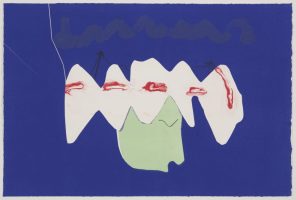 |
Downey, Kerry. “Creating Good-Enough Containers: Reflections on Queerness in Community-Based Museum Education.” Art Journal Open (January 9, 2019).
Kerry Downey, They said to the ocean, 2016, monotype with chine-collé, 19 x 13.5 in. Printed with Marina Ancona / 10 Grand Press. |
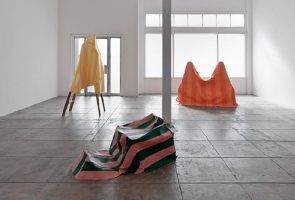 |
Doyle, Jennifer and David Getsy. “Queer Formalisms: Jennifer Doyle and David Getsy in Conversation.” Art Journal Open (March 31, 2014).
Math Bass, Body No Body Body, 2012, latex paint on canvas and wood, installation view, Overduin and Kite, Los Angeles, 2012 (artwork © Math Bass; photograph provided by Overduin and Kite) |
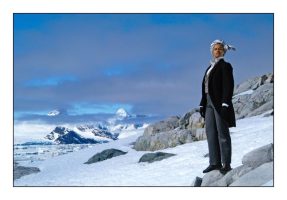 |
Getsy, David J. and Che Gossett, “A Syllabus on Transgender and Nonbinary Methods for Art and Art History.” Art Journal Open (February 4, 2022). Crossover article from Art Journal, 80, no. 4 (Winter 2021).
Del LaGrace Volcano, Moj of the Antarctic: On the Mountain, Antarctica, 2005, giclée print, 30 x 36 in. (76.2 x 91.4 cm) (artwork © Del LaGrace Volcano) |
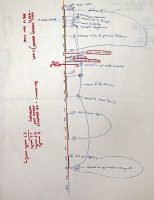 |
Latimer, Tirza True. “Introduction: Conversations on Queer Affect and Queer Archives.” Art Journal Open (October 24th, 2013). Crossover article from Art Journal 72, no. 2 (Summer 2013).
Veronica Friedman, Pages from monthly planners, 1980 and 1981. Veronica Friedman Papers, Gay, Lesbian, Bisexual, Transgender Historical Society, San Francisco (photograph © Barbara McBane) |
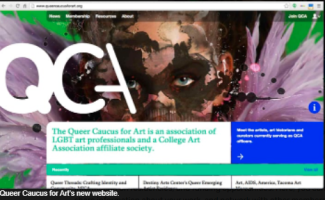 |
Queer Caucus for Art. “Update from the Queer Caucus for Art.” Art Journal Open (January 26, 2016). |
 |
Rosa, Maria Laura. “Questions of Identity: Photographic Series by Alicia D’Amico, 1983–86.” Art Journal Open (July 2, 2019). Crossover article from Art Journal 78, no. 1 (Spring 2019).
Alicia D’Amico photograph of Liliana, a performance by Liliana Mizrahi, 1983, scanned copy of original negative, reproduction from original 35mm negative contact (photograph © Archivo Alicia D’Amico, Buenos Aires) |
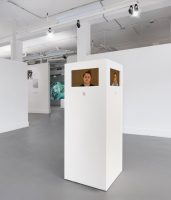 |
Shvarts, Aliza. “Toward a Reparative Pedagogy: Art as Trigger, Art as Repair.” Art Journal Open (April 7, 2022).
|
 |
Whitener, Brian. “Transiting in Anti-Patriarchal Worlds: The Queer Photography of Fernando Fuentes.” Art Journal Open (November 18, 2021).
Fernando Fuentes, “Emma” (with Homero Emma Jimenez), 2020 (photograph by Constanza Moctezuma) |
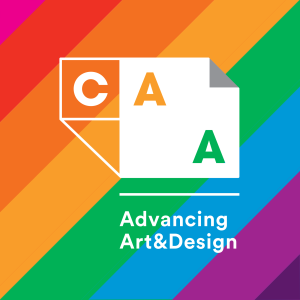
Pride Month and caa.reviews
posted by CAA — June 02, 2022
This Pride Month, we highlight the rich scholarship and programs produced at CAA that center LGBTQ+ topics, as well as gender and sexual identity, in the fields of visual arts and the humanities. This week, we are sharing a bibliography of publications and exhibitions on these topics reviewed this past year on our open-access journal caa.reviews.
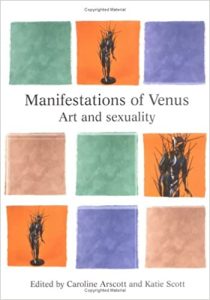 |
Arscott, Caroline and Katie Scott, editors. Manifestations of Venus: Art and Sexuality. Manchester: Manchester University Press, 2001. |
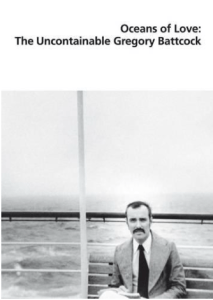 |
Battcock, Gregory. Oceans of Love: The Uncontainable Gregory Battcock. Ed Joseph Grigely, Cologne, Germany: Verlag der Buchhandlung Walther Konig, 2016. |
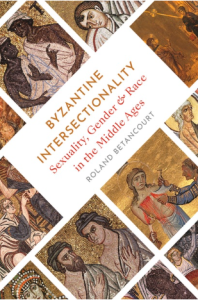 |
Betancourt, Roland. Byzantine Intersectionality: Sexuality, Gender, and Race in the Middle Ages. Princeton, NJ: Princeton University Press, 2020. |
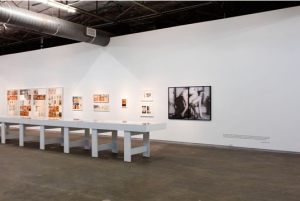 |
Black Sheep Feminism: The Art of Sexual Politics. Dallas: Dallas Contemporary, 2016. |
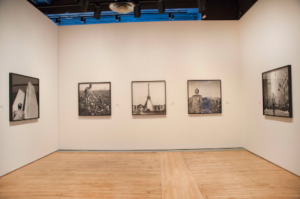 |
Brandt, Amy ed. Tseng Kwong Chi: Performing for the Camera. Norfolk, VA and New York: Chrysler Museum of Art, Grey Art Gallery, New York University, and Lyon Artbooks, 2015. |
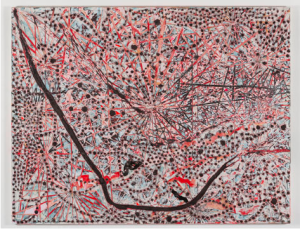 |
Butler, Connie. Mark Bradford: Scorched Earth. Exh. cat. Los Angeles: Hammer Museum in association with Prestel, 2015.
Mark Bradford. Lights and Tunnels, 2015 (photograph © 2015 Joshua White; provided by Hauser & Wirth) |
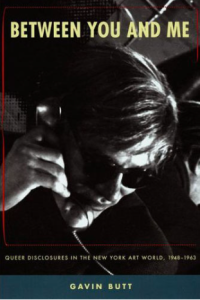 |
Butt, Gavin. Between You and Me: Queer Disclosures in the New York Art World, 1948–1963. Durham, NC: Duke University Press, 2005.
|
 |
De Salvo, Donna. Andy Warhol: From A to B and Back Again. Exh. cat. New Haven and New York: Yale University Press in association with The Whitney Museum of American Art, 2018.
Installation view, Andy Warhol—From A to B and Back Again, Whitney Museum of American Art, New York, November 12, 2018–March 31, 2019 (photograph © 2018 by Ron Amstutz, provided by The Andy Warhol Foundation for the Visual Arts, Inc./Licensed by Artists Rights Society [ARS], New York) |
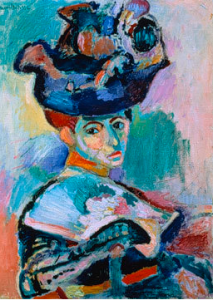 |
Corn, Wanda M. and Tirza True Latimer. Seeing Gertrude Stein: Five Stories. Exh. cat. Berkeley: University of California Press, 2011.
Henri Matisse. Woman with a Hat (1905). Oil on canvas. 31 3/4 x 23 1/2 in. (80.7 x 59.7 cm). SFMOMA, Bequest of Elise S. Haas. © Succession H. Matisse, Paris / Artists Rights Society (ARS), New York. Photo: Ben Blackwell |
 |
Doyle, Jennifer. Hold It Against Me: Difficulty and Emotion in Contemporary Art. Durham: Duke University Press, 2013. |
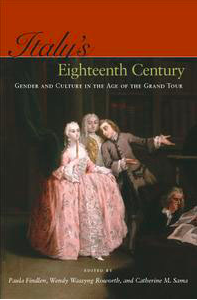 |
Findlen, Paula, Wendy Wassyng Roworth, and Catherine M. Sama, editors. Italy’s Eighteenth Century: Gender and Culture in the Age of the Grand Tour. Stanford: Stanford University Press, 2009. |
 |
Gallucci, Margaret A. Benvenuto Cellini: Sexuality, Masculinity, and Artistic Identity in Renaissance Italy. New York: Palgrave Macmillan, 2003. |
 |
Gill, Lyndon K. Erotic Islands: Art and Activism in the Queer Caribbean. Durham, NC: Duke University Press, 2018. |
 |
Gómez-Barris, Macarena. Beyond the Pink Tide: Art and Political Undercurrents in the Americas. American Studies Now: Critical Histories of the Present. Oakland: University of California Press, 2018. |
 |
Guyton, Wade. One Month Ago. Edition of 500. New York: Karma, 2014. |
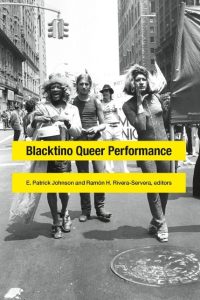 |
Johnson, E. Patrick and Ramón H. Rivera-Servera, editors. Blacktino Queer Performance. Durham: Duke University Press, 2016. |
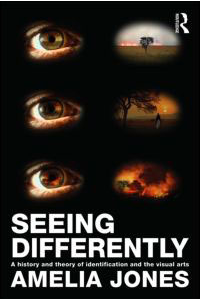 |
Jones, Amelia. Seeing Differently: A History and Theory of Identification and the Visual Arts. New York: Routledge, 2012. |
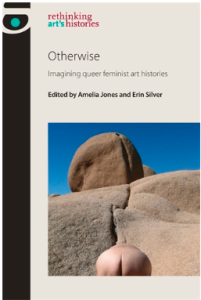 |
Jones, Amelia and Erin Silver. Otherwise: Imagining Queer Feminist Art Histories. Manchester: Manchester University Press, 2016.
With follow-up interview between Amelia Jones and David J. Getsy, Abstract Bodies and Otherwise: A Conversation with Amelia Jones and David Getsy on Gender and Sexuality in the Writing of Art History. February 16, 2018 |
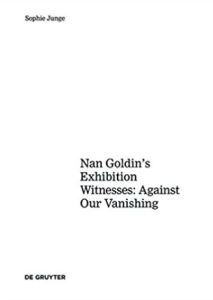 |
Junge, Sophie. Art about AIDS: Nan Goldin’s Exhibition Witnesses: Against Our Vanishing Berlin: De Gruyter, 2017. |
 |
Katz, Jonathan David and Rock Hushka, editors. Art AIDS America. Exh. cat. Seattle: Tacoma Art Museum in association with University of Washington Press, 2015.
Courtesy of the Zuckerman Museum of Art. Photos by Mike Jensen |
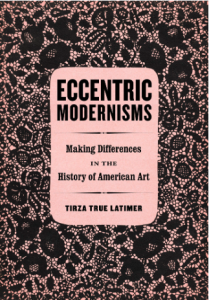 |
Latimer, Tirza True. Eccentric Modernisms: Making Differences in the History of American Art. Oakland: University of California Press, 2016. |
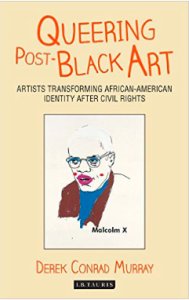 |
Murray, Derek Conrad. Queering Post-Black Art: Artists Transforming African-American Identity after Civil Rights. London: I.B. Taurus, 2016. |
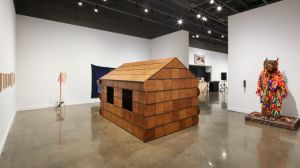 |
No Wrong Holes: Thirty Years of Nayland Blake. Institute of Contemporary Art, Los Angeles, September 29, 2019–January 26, 2020; MIT List Visual Arts Center (online), Cambridge, MA, October 16, 2020–February 14, 2021.
No Wrong Holes: Thirty Years of Nayland Blake, installation view, MIT List Visual Arts Center, Cambridge, MA, 2020–21 (photograph © Charles Mayer, provided by MIT List Visual Arts Center) |
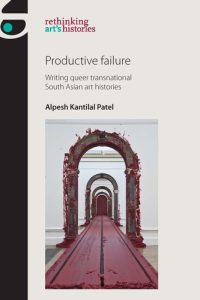 |
Patel, Alpesh Kantilal. Productive Failure: Writing Queer Transnational South Asian Art Histories. Manchester, UK: Manchester University Press, 2017. |
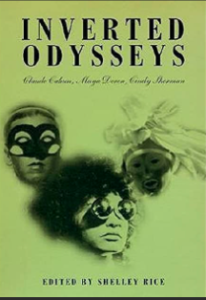 |
Rice, Shelley. Inverted Odysseys: Claude Cahun, Maya Deren, Cindy Sherman. Cambridge, Mass.: MIT Press, 1999. |
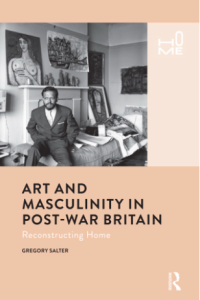 |
Salter, Gregory. Art and Masculinity in Post-War Britain: Reconstructing Home. London: Routledge, 2019. |
 |
Transamerica/n: Gender, Identity, Appearance Today. McNay Art Museum, San Antonio, June 20–September 15, 2019.
Jacolby Satterwhite, How lovly is me being as I am, 2014, neon, installation view from Transamerica/n: Gender, Identity, Appearance Today, McNay Art Museum, San Antonio, 2019 (artwork © Jacolby Satterwhite; photograph provided by the artist and Morán Morán, Los Angeles) |
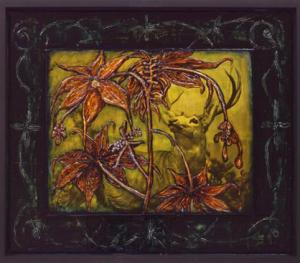 |
Tony Greene: Room of Advances. MAK Center for Art and Architecture, Schindler House, Los Angeles, June 18–September 7, 2014.
Tony Greene. His Puerile Gestures (1989). Mixed Media. 25 1/2 x 29 3/4 in. Collection of Ray Morales, from the estate of Norm MacNeil |
 |
Turner, James Grantham. Eros Visible: Art, Sexuality and Antiquity in Renaissance Italy. New Haven: Yale University Press, 2017. |
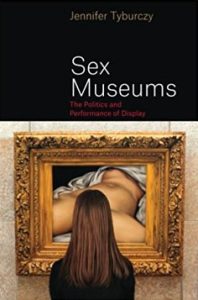 |
Tyburczy, Jennifer. Sex Museums: The Politics and Performance of Display. Chicago: University of Chicago Press, 2016. |
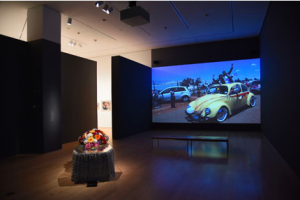 |
Zanele Muholi: Isibonelo/Evidence. Brooklyn Museum, New York, May 1–November 8, 2015.
Zanele Muholi: Isibonelo/Evidence. Installation view. Courtesy of the Brooklyn Museum. |

IN MEMORIAM: Samella Lewis
posted by CAA — May 31, 2022
Samella Lewis, an artist, curator, and historian whose writings shaped African American art history, has died at 98. She died on Friday, according to the Museum of African American Art in Los Angeles, which Lewis founded. In 2021, the College Art Association, where Lewis had once been on the publications committee, gave her its esteemed lifetime achievement award.
Learn more about Samella life and work here.
Meet the Spring 2022 Millard Meiss Publication Fund Grant Recipients
posted by CAA — May 25, 2022
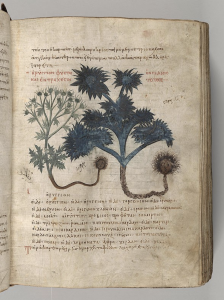
Depiction of eryngoes, De materia medica, MS M 652, f. 57r., The Morgan Library & Museum (relates to Griebeler, Botanical Icons: Critical Practices of Illustration in the Premodern Mediterranean)
MEET THE GRANTEES
Twice a year, CAA awards grants through the Millard Meiss Publication Fund to support book-length scholarly manuscripts in the history of art, visual studies, and related subjects that have been accepted by a publisher on their merits, but cannot be published in the most desirable form without a subsidy.
Thanks to the generous bequest of the late Prof. Millard Meiss, CAA began awarding these publishing grants in 1975.
SPRING 2022 GRANTEES
Claudia Calirman, Dissident Bodies: Brazilian Women Artists, (1960s-2020s), Duke University Press
Karen Mary Davalos and Tatiana Reinoza, Self Help Graphics at Fifty: A Cornerstone of Latinx Art and Collaborative Artmaking, University of California Press
Andrew Griebeler, Botanical Icons: Critical Practices of Illustration in the Premodern Mediterranean, University of Chicago Press
Joan Kee, The Geometries of Afro Asia: Art beyond Solidarity, University of California Press
Miriam Kienle, Queer Connections: Ray Johnson’s Correspondence Art Network, University of Minnesota Press
Murad Mumtaz, Faces of God: Images of Muslim Devotion in Indian Painting, Brill



